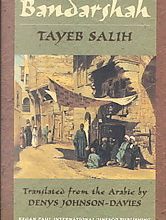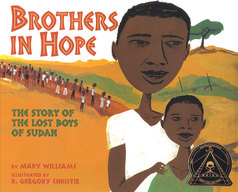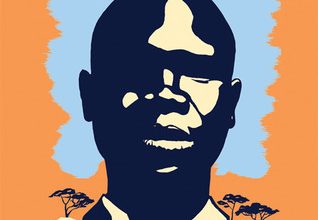Book Review: Third Edition of Respectable Man Memoire

By: Mohammed El Sheikh Hussein
abusamira85@gmail.com
It is high time for the Sudanese Library books to bet on the presence of a reader searching within its folds for new types of knowledge despite the different and varied forms and types of writing, particularly when the author intends to gain the reader through the texts of the book on the one hand, and is keen to return the favor by presenting a text that attracts attention and reflects interest in providing a new addition to the Sudanese library on the other hand.
Under this understanding, we celebrate the publication of the third edition of Professor Abu Bakr Osman Mohammed Saleh’s book (In the Courtyard of Diplomacy and Power) which is a book that falls within the field of social history through a methodology that combines the objectivity of historical writing with the subjectivity of biography and personal memories.
Wall of honesty
When loyalty strikes a person in the experience of life, this fragile being feels his strength and finds nothing but honesty as a wall to resort to as an expression of this loyalty. The question here becomes: How is it when this stricken person becomes a distinguished diplomat and an experienced politician?
It is undisputable that he will then review his life experience through a group of situations and scenes that he narrates with extreme honesty, without adding or omitting.
This is what Professor Abu Bakr Osman Mohammed Saleh, the ambassador and former minister, and one of the most prominent and respected men, did during the May Revolution era that took place in the country from the twenty-fifth of May 1969 until the sixth of April 1985.
The previous lines may match the first impression of the reader of the third edition of Professor Abu Bakr’s book Memories, entitled (In the Courtyard of Diplomacy and Power), after Ustaz/ Al-Ameer Mohammed Ahmed Al-Berair pushed it within the framework of a strong campaign that he intends to launch, to put the book at the forefront of life through the modern Al-Brair printing Press.
In the “courtyard” of Abu Bakr Osman Mohammed Saleh is considered the closest title to the book, which contains about 400 pages of average size that the author wrote down from memory.
Between two lives
The book’s nine chapters, with its appendices and highlights, come as a pause and a dividing station between the two lives of the book’s author, a life that began with his birth cry in Halfa Daghim before disappearing in its narrow strip extending along the Nile with its palm trees, houses, farms, and cliffs under the waters of the High Dam.
Halfa Daghim was one of the most beautiful cities in Sudan, this is how the author describes it, and perhaps this description is consistent with the phrase that spread in the Nubian demonstrations against the construction of the High Dam, when they chanted (Better Halfa Daghim than Beirut).
What is important here is that the impact of your first upbringing appears clear to you in the pages of the book in terms of intimacy, transparency, and honesty in the narration. There is no surprise in this, as man is the son of his first environment, and the author’s environment is in Halfa Daghim, where the Nile and the palm trees give the soul the qualities of tenderness and gentleness mixed with the values of truth and patience. These noble qualities seem to dominate all the pages of the book, and you even imagine that the courtier is like someone who rode the train of time and went behind the glass window, recalling the tape of his memories, and then nostalgia for the pastures of his youth returns to him.
First environment
The point is that the first environment made the Villager Abu Bakr Osman Mohammed Saleh, first the ambassador and then the minister, who was very close to the late President Jaafar Mohammed Numeiri. It made the ambassador and minister Abu Bakr the Villager in terms of dealings and mixed with the virtues of simplicity, tolerance, and dedication to serving others. You will be amazed at Mr. Abu Bakr’s rurality and his preservation of its noble values in all locations and places, and the evidence in the book is many. The young villager, after he was appointed as a diplomat and decided to transfer him to the Egyptian embassy in Cairo, stored in his memory the presence of Ustaz / Mohammed Osman Yassin at the railway station in Khartoum to bid him farewell. It was a majestic sight that the most senior employee in the ministry came to the train station early to bid farewell to one of his younger employees. A wonderful human scene. I wish ministers, agents, and holders of high positions, benevolently or otherwise, these days, would care about such human touches in their dealings with occupants of small positions.
And another humanitarian stance that the village’s behavior helped Ustaz Abu Bakr to avoid with grace, when President Numeiri decided to relieve the late Ustaz Jamal Mohammed Ahmed from the Ministry of Foreign Affairs, and he was at that time on an official mission in France, and the author of the book was the Sudanese ambassador there, and the news of the dismissal came to him, and according to his official position, he had to inform him. Mr. Jamal received this news, so he behaved with the nobility of a villager when he received devastating news.
The Steadfastness of the villager
Here is a strong scene that indicates the village’s behavior in terms of Steadfastness, when Lieutenant General Abdul Rahman Mohammed Hassan Siwar al-Dhahab, head of the Transitional Military Council, was asked to relieve him from the position of Secretary General of Integration, according to the provisions of the agreement with Egypt. The evidence of the Villager’s Steadfastness here is that Ustaz Abu Bakr asked for discharge before Ustaz Mohammed Ibrahim Naqd, Secretary of the Communist Party, attacked him in a public symposium, and demanded that he has to resign, because “he does not need the salary of this job,” according to Ustaz Nagd’s expression.
A final situation is represented by the story of the person who contacted the Sudanese ambassador in Paris, conveying to him the news that a group opposed to the government had purchased weapons with which it intended to plot an armed invasion within the framework of what was known as the (mercenary invasion) in July 1976. What concerns us here is that Ambassador Abu Bakr, the author of the book, conveyed the news in the Nubian language to the Minister of Foreign Affairs, who was fluent in it.
The lesson of history in the human experience, which is the true meaning of history, and the advantage of this book is its clear keenness to combine memories with thinking, which is the true value of memory which Professor Abu Bakr seems to have been keen to keep alive.
Many issues
The book opens up a broader scope for many issues about the way former President Numeiri ruled, how he appointed his ministers, and how he dismissed them? Perhaps the good reader wishes that Ustaz Abu Bakr had elaborated on many of the issues of appointments and dismissals, especially those that were issued in bulk, and the questions are many. Was President Numeiri making decisions alone or did he involve others with him?
Was he keen to provide objective justifications for his decisions, or was he issuing them according to the mood and the person’s proximity or distance to the group close to President Numeiri at the moment of making the decision?
Was President Numeiri a one-man ruler or were his policies closer to the British colonial policy of divide and rule?
The third advantage of The Courtyard of Abu Bakr Osman Mohammed Saleh, entitled The Courtyard of Diplomacy and Power, is that the book mixes very smoothly between the human and the historical and what was seen and heard. Rather, the book is a successful attempt to create a fabric that compensates for the lack of any understanding of the movement of life during the time period and spatial area that the book covers.
A fourth advantage of the book is that Ustaz Abu Bakr asked that his facts be dealt with as memories and not notes. This is great modesty on the part of the book’s author, as the facts it contains are part of the repertoire of political life in our country, and the importance of these facts is that their author, with great modesty, did not ask memory to dictate to him or to us. Rather, the future requires – if I think correctly – that the memory should be present and existing in the present, so that we do not forget it, because if we forget, we will face a new beginning every time.
Among the political forces that the book talked about were short-lived and quick references to the process of parties, and here there is a special belief that most of May Revolution’s leaders are weak in talking about the partisan experience. Is this due to May Revolution and its leaders considering the decline of the partisan experience likely, so they ignore talking about it, despite the fact that the political reality after the April 1985 uprising indicates that the partisan experience has witnessed a new stage of recovery, and the legitimate question is: What does this mean?
A fifth advantage is that during the time period covered by the book, eight eras passed through the country, each era was different from the other, but the author of the book was able to preserve the memory of the events from loss, especially since he insists that the book is mere memories, and the secret of the strength of this insistence, I believe, is that the author remained with a memory that was not affected because it was inherited by authentic traditions and preserved by virtuous values.
The book “In the Courtyard of Diplomacy and Power” remains a noble testimony to an important political era, narrated by Abu Bakr Osman Mohammed Saleh and written in an autobiography and memories in which he reveals the contents of his experience and declares his absolute siding with all the virtuous values that fill our lives.



